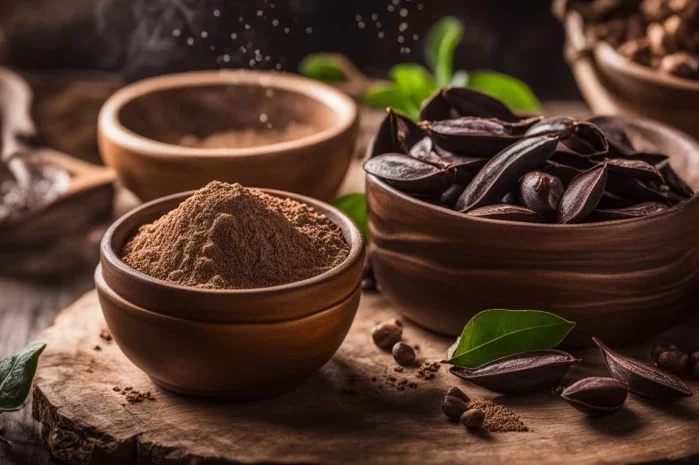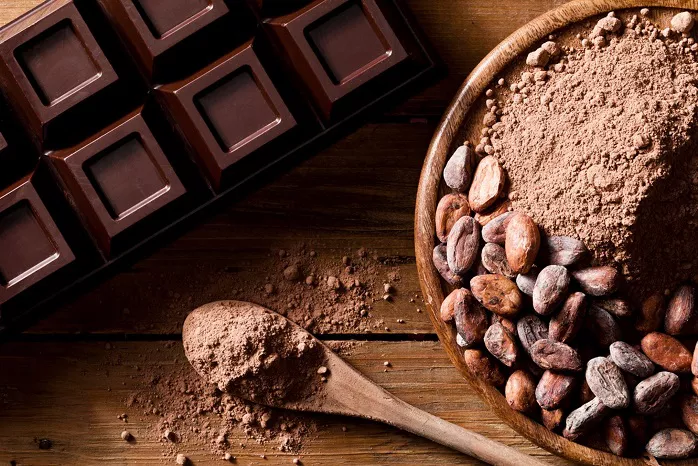Cocoa, a beloved ingredient in desserts and drinks, is often associated with relaxation and comfort. Many people enjoy a cup of hot cocoa before bed, believing it promotes better sleep. But does cocoa really help you sleep? In this article, we’ll explore cocoa’s properties, its effects on sleep, and how to use it effectively in your nighttime routine.
What Is Cocoa?
Cocoa comes from the seeds of the cacao tree, Theobroma cacao. The seeds, also known as cacao beans, are fermented, dried, and roasted to create cocoa powder. Cocoa powder is commonly used in baking, beverages, and chocolate production.
Cocoa contains several bioactive compounds, including:
Theobromine: A mild stimulant similar to caffeine.
Flavanols: Antioxidants that support heart and brain health.
Magnesium: A mineral that supports relaxation and nerve function.
Tryptophan: An amino acid that plays a role in sleep.
How Does Cocoa Affect Sleep?
Cocoa has both stimulating and relaxing properties, which can influence sleep in different ways.
The Role of Theobromine and Caffeine
Cocoa contains small amounts of theobromine and caffeine, both of which can act as stimulants.
Theobromine: In moderate amounts, it has a mild stimulating effect. However, its impact is weaker compared to caffeine.
Caffeine: Found in trace amounts in cocoa, caffeine can disrupt sleep if consumed in large quantities.
For sensitive individuals, the stimulating properties of these compounds might interfere with falling asleep.
Magnesium in Cocoa: Magnesium is a key mineral for sleep. It helps relax muscles, calm the nervous system, and regulate the production of melatonin, a hormone that controls sleep-wake cycles. Cocoa contains a good amount of magnesium, making it potentially beneficial for sleep.
Tryptophan and Serotonin: Cocoa is a source of tryptophan, an amino acid that the body converts into serotonin and melatonin.
- Serotonin: A neurotransmitter that promotes relaxation.
- Melatonin: A hormone that signals the body it’s time to sleep.
Drinking cocoa may help enhance these pathways, encouraging better sleep.
Does Cocoa Reduce Stress?
Stress is a common reason for poor sleep. Cocoa can promote relaxation by:
Improving mood: Flavanols in cocoa boost blood flow to the brain, supporting cognitive function and reducing stress.
Encouraging relaxation: The warm sensation of a hot cocoa drink can be soothing.
Studies suggest that regular consumption of cocoa may reduce cortisol, the stress hormone. Lower cortisol levels can lead to better sleep quality.
The Psychological Comfort of Cocoa
Drinking a cup of hot cocoa can be comforting due to its warmth and flavor. This psychological effect can help you unwind, signaling your body that it’s time to relax. Creating a bedtime ritual with cocoa can improve your mental state and encourage restful sleep.
Is All Cocoa Good for Sleep?
Not all cocoa products are the same. Some may be better suited for promoting sleep than others.
Hot Cocoa vs. Chocolate
- Hot cocoa: Often mixed with milk, it provides tryptophan, magnesium, and a warm, soothing experience.
- Chocolate: Contains higher levels of theobromine and caffeine, especially in dark chocolate. Eating chocolate at night may disrupt sleep for some people.
Sweetened vs. Unsweetened Cocoa
- Sweetened cocoa: Contains added sugar, which can cause a spike in energy levels and make it harder to fall asleep.
- Unsweetened cocoa: A healthier option that retains cocoa’s natural benefits without added sugar.
Choose unsweetened cocoa powder or low-sugar hot cocoa mixes for a sleep-friendly option.
How to Use Cocoa for Better Sleep
To maximize cocoa’s sleep-promoting benefits, follow these tips:
Choose the Right Time: Drink your cocoa about 30–60 minutes before bedtime. This gives your body enough time to absorb its nutrients and begin relaxing.
Add Sleep-Friendly Ingredients: Pairing cocoa with certain ingredients can enhance its effects on sleep.
- Milk: A source of tryptophan and calcium, which help promote sleep.
- Honey: A small amount of honey can provide natural sweetness and help regulate blood sugar during sleep.
- Spices: Add cinnamon or nutmeg for a warm, calming flavor.
Avoid Overconsumption: While cocoa can be beneficial, consuming too much may have the opposite effect due to its stimulants. Stick to one cup of hot cocoa, preferably with unsweetened powder.
Avoid Late-Night Sugar: If you’re making hot cocoa, avoid adding too much sugar, as it can cause energy spikes. Instead, use natural sweeteners like stevia or coconut sugar.
Scientific Evidence on Cocoa and Sleep
Research on cocoa’s direct effects on sleep is still emerging. Some studies highlight its relaxing properties, while others focus on its role in reducing stress and improving mood.
For example:
- Flavanols: Studies show that cocoa flavanols support blood flow to the brain, potentially improving sleep quality.
- Magnesium: Research confirms that magnesium can reduce insomnia symptoms.
- Stress reduction: Regular cocoa consumption has been linked to lower stress levels, indirectly improving sleep.
Although more studies are needed, the evidence suggests that cocoa can be part of a healthy sleep routine.
Who Should Avoid Cocoa Before Bed?
While cocoa may help many people sleep better, it’s not suitable for everyone. You might want to avoid cocoa if you:
- Are sensitive to caffeine or theobromine.
- Experience acid reflux or heartburn, as cocoa can trigger these symptoms.
- Have diabetes or need to manage your sugar intake.
Consult a doctor if you’re unsure whether cocoa is right for your nighttime routine.
Other Sleep Tips
While cocoa can support sleep, it’s important to adopt other healthy habits:
Maintain a consistent bedtime: Go to bed and wake up at the same time every day.
Create a relaxing environment: Dim the lights and avoid screens before bed.
Avoid heavy meals: Eating large or spicy meals close to bedtime can disrupt sleep.
Exercise regularly: Physical activity during the day promotes better sleep.
Conclusion
Cocoa can be a comforting and potentially beneficial addition to your bedtime routine. Its magnesium, tryptophan, and stress-reducing properties make it a promising aid for better sleep. However, individual responses vary, and some people may need to limit or avoid cocoa at night.
To enjoy cocoa’s sleep-enhancing effects, opt for unsweetened cocoa, avoid excess sugar, and pair it with sleep-friendly ingredients. With the right approach, cocoa can help you wind down and prepare for a restful night.
Related topics:



























